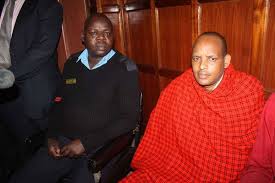Kenya Network of Cancer Organizations (KENCO) has blamed politicians for making cancer a political issue in Kenya.
Speaking to health journalists on matters hindering reduction of cancer deaths in the country, the organization’s chairperson David Makumi said that cancer is being put in the heart of every political discussion yet nothing much is being done about it.
Makumi said that currently cancer is the leading killer disease in the country adding that Sub-Saharan Africa has the greatest burden of infection driven cancer.
“In Kenya, cancer is killing more people that Malaria, Pneumonia, Tuberculosis and HIV/AIDS,” Makumi noted.
SGR Vs Cancer centers
The Chair brought to the attention of the public that the Standard Gauge Railway (SGR) was built in record of less than four years whereas the promises of opening five new cancer centers was made more than ten years ago.
“We are more certain about SGR reaching Naivasha or Kisumu whichever is closer than when exactly we will have a cancer hospital built,” Said Makumi.
Makumi however was glad to note the Radiotherapy Machine donated by India to Kenyatta National Hospital is now working and it can serve about 200 cancer patients in one day.
Newest cancer treatments today
Makumi said that there are several new cancer treatments available among the Targeted therapy, immunotherapy, laparoscopic and robotic surgery.
Immunotherapy/biologic therapy, is a type of cancer treatment that boosts the body’s natural defenses to fight the cancer.
It uses substances made by the body or in a laboratory to improve or restore immune system function.
Targeted therapy is a newer type of cancer treatment that uses drugs or other substances to more precisely identify and attack cancer cells.
Targeted therapy drugs are designed to attach themselves to specific receptors and proteins unique to cancer cells.
Laparoscopic surgery also called minimally invasive surgery (MIS), or keyhole surgery, is a modern surgical technique in which operations are performed far from their location through small incisions (usually 0.5–1.5 cm) elsewhere in the body with the assistance of a video camera.
During the procedure, plastic tubes called ports are placed through these incisions. The camera and the instruments are then introduced through the ports which allow access to the inside of the patient.
The camera transmits an image of the organs inside the abdomen onto a television monitor.
Robotic surgery is done using robots in the operating room to assist the surgeon in performing surgery. The surgeon views the patient via a terminal and manipulates robotic surgical instruments via a control panel.
Views of the organs being worked on are transmitted from tiny cameras inserted into the body.
The robot replicates the surgeon’s hand movements, while minimizing hand tremors. The surgeon thus can operate with enhanced precision, dexterity and control even during the most complex procedures.
Makumi also noted so far the government has received two funds from India to set up cancer machines in the country and they opted they be given to other counties apart from Nairobi in order to improve accessibility.
They will to Nyeri and Kisii Counties.
Counterfeit cancer drugs
The government was urged to deal with the fake cancer drugs in the market and the chair suggested one way of curbing them would to ensure that patients don’t walk around with prescription to buy the medicines in chemists.
He suggested that patients should be getting their medicines directly from the hospitals with ease and at affordable prices.










